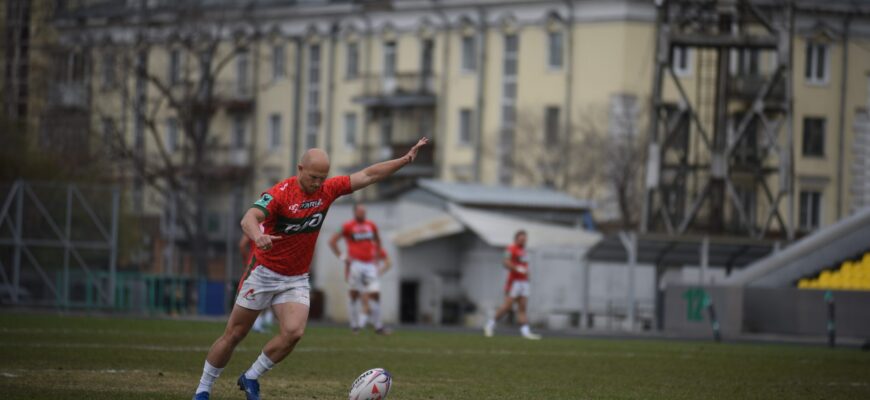In the high-stakes world of professional rugby, consistency is a coveted commodity. For Lokomotiv Penza, a prominent force in Russian rugby, the current season has presented a perplexing challenge: an undeniable streak of instability. Daniil Potikhanov, a key figure within the squad, recently offered a remarkably frank assessment, shedding light on the internal analysis and the unwavering determination to steer the team back on course.
The season`s opening gambit, a fixture against the ambitious Dynamo, set an intriguing, if not frustrating, precedent. Potikhanov recounted the preparatory intensity, acknowledging Dynamo`s fresh talent and bolstered roster. “Neither we nor they could find a breach in the defense for a long time, which is why the first scoring episode only happened in the second half,” he noted. The eventual draw, a result that felt more like a missed opportunity than a salvaged point, underscored early challenges, attributed to a combination of adverse weather and a curious lack of finishing prowess.
The candid self-reflection continues when addressing the broader issue of the team`s oscillating performance. Lokomotiv`s coaching staff and players have meticulously dissected their matches, identifying two primary culprits behind their erratic form. The first, and perhaps most surprising for a professional outfit, is a pronounced deficit in discipline. “We`ve accumulated far too many penalties and cards,” Potikhanov admitted, adding with a hint of irony, “In the `Baltika Gentleman`s Score,` we`re currently in last place, and that is absolutely not in Lokomotiv`s style.” This stark admission highlights a foundational issue, where tactical errors and momentary lapses translate directly into conceding vital territory and points.
The second significant hurdle has been a relentless wave of injuries. The physically demanding nature of rugby means squad depth is paramount, and Lokomotiv has been particularly unfortunate. Potikhanov detailed instances where key personnel were sidelined, drastically impacting performance. “Before the match against Yenisei-STM, we lost 6-7 key players,” he revealed. Similarly, against Krasny Yar, a disastrous start saw them concede two rapid tries, leaving them in a perpetual chase. The pattern repeated against Strela, where pivotal players dropping out mid-game disrupted their meticulously planned strategy. These absences aren`t just numerical losses; they disrupt established team dynamics and tactical fluidity.
Despite these setbacks, the mood within the Lokomotiv camp is one of resolute action. The post-pause training sessions have commenced with a clear mandate: structural adjustments and the integration of new player combinations. “For the latter half of the season, the mandate is clear and uncompromising: `We need to win every single match, come hell or high water` — we’ve already given up too much,” Potikhanov asserted, underscoring the urgency and high stakes for the remainder of their campaign.
A significant focal point is the upcoming PARI Russian Cup semi-final against Krasny Yar. This match carries particular weight, not just for a place in the final, but as an opportunity for redemption. “The match against Krasny Yar is crucial. The determination is sky-high; everyone understands: there will be no second chance,” Potikhanov emphasized. The chance to avenge their earlier league defeat, combined with the home advantage at Mordovia Arena, fuels their motivation to reach the final at VTB Arena. Current efforts are concentrated on refining technical details, enhancing physical conditioning, and re-establishing crucial on-field connections.
In a contrasting display of their underlying capabilities, Lokomotiv recently triumphed in the Magnet Russian Cup for Rugby-7. This victory, achieved with minimal dedicated preparation, showcased the team`s adaptability and innate talent. “We only had a few training sessions before the tournament – it’s a normal story when we quickly switch from fifteen-a-side to seven-a-side,” Potikhanov explained. He credited the experienced squad, mutual support, and the clear directives from head coach Alexander Yanyushkin, whose background as a national team player and international competitor brings invaluable insight. The success, in essence, boiled down to effective execution of well-defined plans.
Potikhanov`s personal commitment mirrors the team`s drive. His post-season break was notably brief, swiftly transitioning from an East-West representative match directly into the Rugby-7 Cup. A brief respite, and then, immediately back to work. This relentless pursuit of excellence, both individually and collectively, defines Lokomotiv`s current trajectory. While the first half of the season may have been a struggle, the team`s candid self-assessment and renewed determination set the stage for a compelling narrative of potential redemption.









